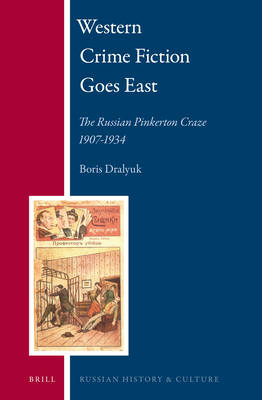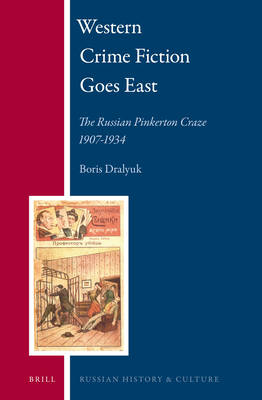
- Afhalen na 1 uur in een winkel met voorraad
- Gratis thuislevering in België vanaf € 30
- Ruim aanbod met 7 miljoen producten
- Afhalen na 1 uur in een winkel met voorraad
- Gratis thuislevering in België vanaf € 30
- Ruim aanbod met 7 miljoen producten
Zoeken
€ 216,95
+ 433 punten
Omschrijving
This book examines the staggering popularity of early-twentieth-century Russian detective serials. Traditionally maligned as "Pinkertonovshchina," these appropriations of American and British detective stories featuring Nat Pinkerton, Nick Carter, Sherlock Holmes, Ethel King, and scores of other sleuths swept the Russian reading market in successive waves between 1907 and 1917, and famously experienced a "red" resurgence in the 1920s under the aegis of Nikolai Bukharin. The book presents the first holistic view of "Pinkertonovshchina" as a phenomenon, and produces a working model of cross-cultural appropriation and reception. The "red Pinkerton" emerges as a vital "missing link" between pre- and post-Revolutionary popular literature, and marks the fitful start of a decades-long negotiation between the regime, the author, and the reading masses.
Specificaties
Betrokkenen
- Auteur(s):
- Uitgeverij:
Inhoud
- Aantal bladzijden:
- 196
- Taal:
- Engels
- Reeks:
- Reeksnummer:
- nr. 11
Eigenschappen
- Productcode (EAN):
- 9789004233102
- Verschijningsdatum:
- 6/09/2012
- Uitvoering:
- Hardcover
- Formaat:
- Genaaid
- Afmetingen:
- 160 mm x 241 mm
- Gewicht:
- 439 g

Alleen bij Standaard Boekhandel
+ 433 punten op je klantenkaart van Standaard Boekhandel
Beoordelingen
We publiceren alleen reviews die voldoen aan de voorwaarden voor reviews. Bekijk onze voorwaarden voor reviews.











